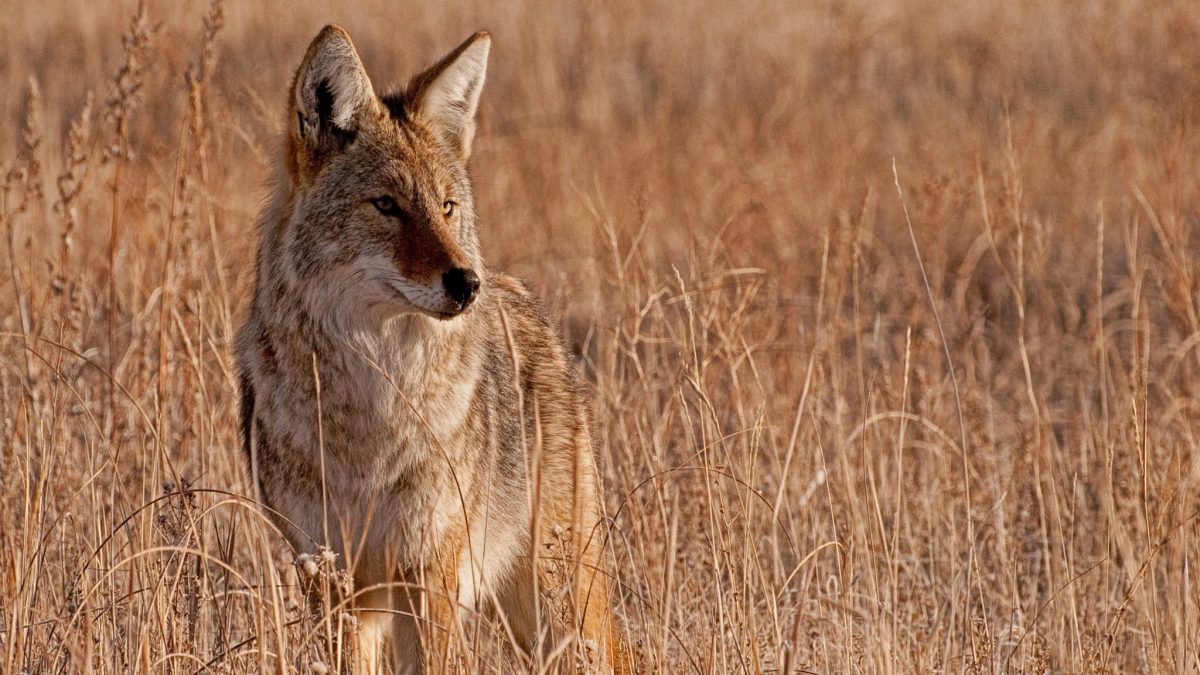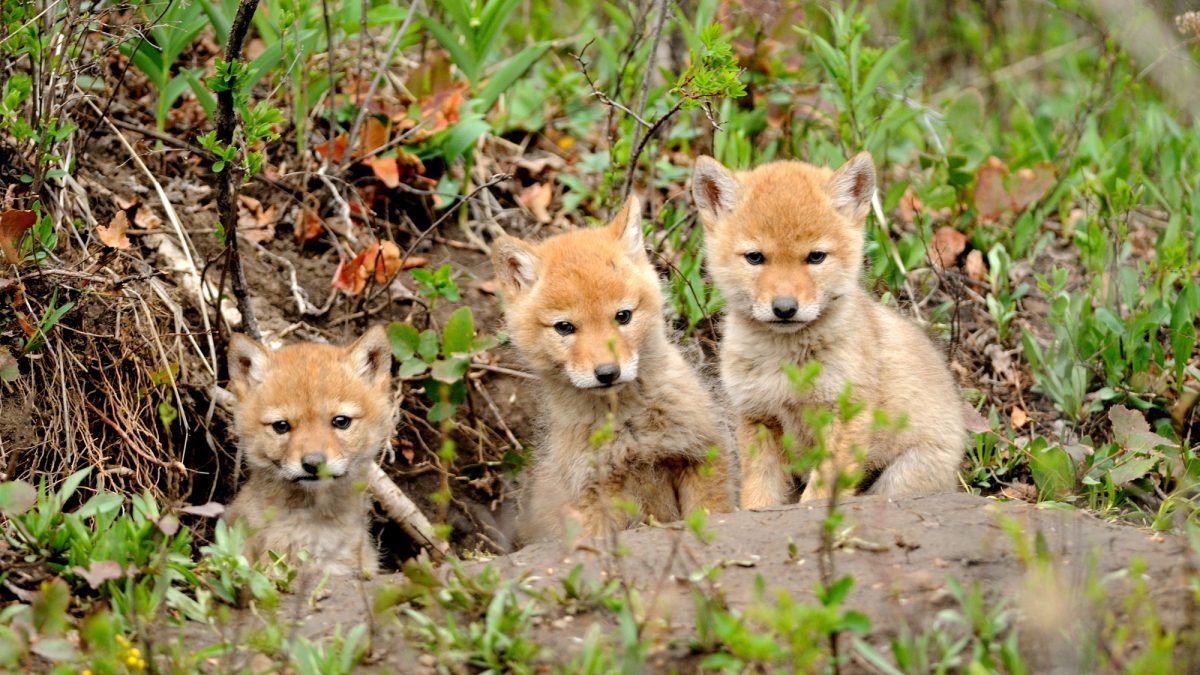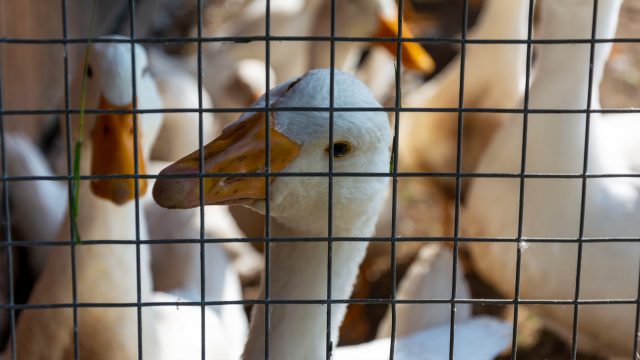
Killing Contests
Killing contests make a cruel game of inflicting misery and death on wildlife. The contests are designed to reduce native wildlife populations, often at the behest of farmers, by making killing “fun” with prizes for various categories of carnage.


Killing contests make a cruel and shameful game of inflicting misery and death on wildlife. The contests are designed to reduce native wildlife populations, often at the behest of farmers and ranchers, by making killing “fun” with prizes for various categories of carnage.
Through advocacy, education, and lawsuits, the Animal Legal Defense Fund is working in collaboration with other wildlife and science-based advocacy organizations to put an end to these cruel events.
Killing Contests are Senselessly Cruel Competitions that Face Major Public Backlash
During killing contests, also known as derbies and tournaments, hunters will compete to kill as many animals as they can during a specified time period — generally, a day or a weekend. Cash and prizes are awarded to the hunters who kill the most animals, the biggest animal, the smallest animal, and so on — which often violate state gambling laws.

Coyotes are the most common animals to be targeted, but some contests encourage the killing of wolves, foxes, bobcats, squirrels, prairie dogs, or even aquatic animals like cownose rays.
Participants often use decoy sounds to lure coyotes and other animals out from hiding. Dogs may be used to flush animals out. Over the course of a weekend, hundreds of coyotes may be slaughtered without “bag limits” that set ceilings on the number of animals who can be killed. When mother coyotes are killed they leave orphaned pups to die of starvation or exposure. The deaths cause packs to become disrupted and displaced. Animals who are injured but not killed may suffer slow, painful deaths.

These contests face backlash not just from the general public, but also from some hunters themselves — who have publicly said they are concerned and troubled both by “unsportsmanlike” practices, and also by how these contests affect public opinion about hunting more broadly.
Killing contests are also ineffective in doing their stated intent: culling native wildlife populations, in a misguided attempt to protect livestock. In fact, evidence shows the killings can — counterintuitively — lead to population growth by simulating breeding and migration.
States are Banning Killing Contests
Despite the fact that hunting remains legal in most cases (subject to jurisdiction-based restrictions), wildlife killing contests have come under increasing scrutiny as especially egregious instances of wanton violence against animals. Some states have, in response, banned killing contests.
The Animal Legal Defense Fund advocates for states to ban wildlife killing contests. California became the first state to outlaw all killing contests in 2014, with a full prohibition on wildlife-killing contests covering non-game mammals and furbearers (including coyotes). In 2018, Vermont outlawed coyote-killing contests — a narrower prohibition than California’s. New Mexico enacted a ban on coyote-killing contests and Arizona and Massachusetts adopted regulations banning killing contests for certain animals, including coyotes, foxes, and bobcats in 2019. Also in 2019, with the Animal Legal Defense Fund and coalition partners’ support, Maryland banned cownose ray killing contests. In 2020, Washington and Colorado adopted regulations banning killing contests for coyotes and foxes, as well as other small mammals.
In 2022, New York amended an existing law to make certain hunting contests, competitions, tournaments, and derbies that allow for the take of large numbers of wildlife unlawful. And, in 2023 Oregon banned coyote killing contests making it ten states that have now banned killing contests.

Taking Killing Contests to Court as Illegal Gambling Operations
The Animal Legal Defense Fund is taking killing contests to court. Through litigation, the Animal Legal Defense Fund has successfully challenged coyote-killing contests in Oregon and Kansas. Because of the lack of legal protections for many of the targeted wildlife species, these lawsuits — often brought in coalition with other animal protection and environmental organizations — are generally founded in the contests functioning as illegal gambling operations, given the cash and other prizes at stake.
In 2014, the Animal Legal Defense Fund successfully put an end to an Oregon coyote killing contest by challenging the cruel competition’s violation of the state’s gambling laws. This approach also put an end to a Kansas killing contest in 2016.
Read more about our work to end coyote-killing contests here.
Related News
-
Take Action for National Justice for Animals Week!
Take action for animals in your community during National Justice for Animals Week by sharing our factsheet about reporting animal cruelty with a veterinarian in your community.February 25, 2026 Action Alert -
Washington: Ask Your Legislators to Support Critical Animal Protection Bills
Critical animal protection bills have been making their way through the 2026 Washington state legislative session and are up for a floor vote. It is important that we let our legislators know we want all of them to pass!February 12, 2026 Action Alert -
ALDF Updates: Advancing Animal Law
Join the Animal Legal Defense Fund to celebrate a victory for plant-based foods, free speech, and consumers!





